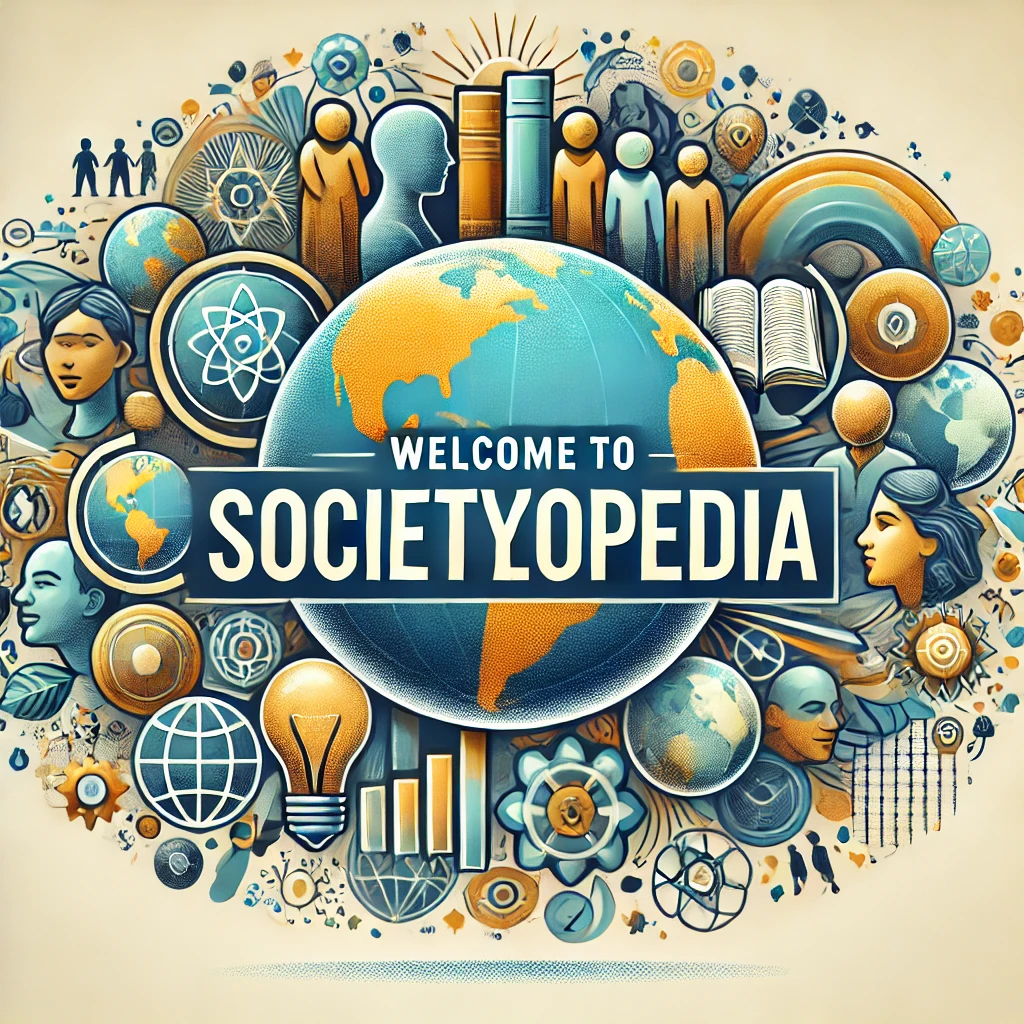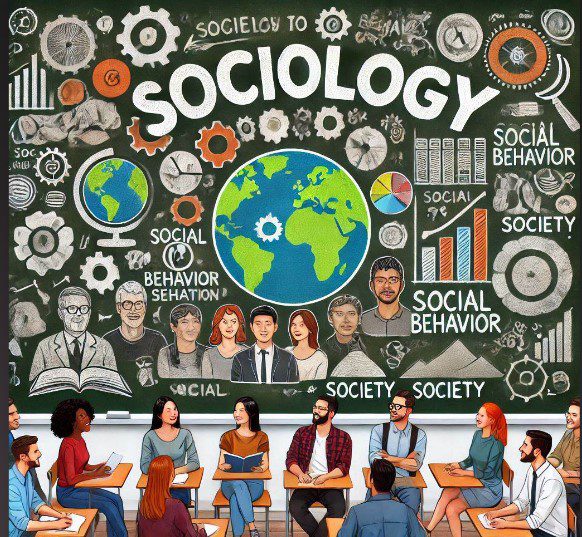Sociology is the scientific study of society, social relationships, and social behavior. In modern society, especially in a diverse and complex country like Pakistan, sociology plays a vital role in understanding and addressing societal challenges. By analyzing social structures, cultural norms, and human interactions, sociology provides insights into issues like inequality, education, poverty, and development. Let’s explore the importance of sociology in modern society with a specific focus on Pakistan.
1. Understanding Social Structures and Institutions
Sociology helps us analyze the fundamental structures that shape society, such as family, education, religion, economy, and politics.
Examples from Pakistan:
- Family Structure
- Pakistan is predominantly a collectivist society where joint families are common. Sociology examines how modernization and urbanization are leading to a shift toward nuclear families, impacting caregiving, traditions, and interpersonal relationships.
- Example: In urban centers like Karachi and Lahore, nuclear families are becoming the norm, resulting in changing responsibilities for elders and increased reliance on daycare facilities for children.
- Education System
- Sociology studies the disparities in Pakistan’s education system, where public schools, private schools, and madrassas coexist, creating class-based segregation.
- Example: A sociology perspective highlights how access to quality education remains limited for rural and low-income communities, perpetuating cycles of poverty.
- Religious Institutions
- Religion is a central component of Pakistani society. Sociology examines how religious practices shape identity and influence societal norms and laws, such as blasphemy laws or the role of ulema (religious scholars) in politics.
2. Addressing Social Inequality
Inequality is a pressing issue in Pakistan, manifested in gender, class, and ethnic divides. Sociology provides tools to understand and address these disparities.
Examples from Pakistan:
- Class Disparities
- Sociology examines the wealth gap between the elite and working classes. Urban centers like Islamabad showcase affluent lifestyles, while rural areas like Tharparkar struggle with poverty and malnutrition.
- Example: The rise of gated communities (e.g., Bahria Town) reflects increasing segregation between the wealthy and the poor.
- Gender Inequality
- Women in Pakistan face challenges like restricted access to education, limited job opportunities, and domestic violence. Sociology studies the cultural and structural barriers that perpetuate these inequalities.
- Example: Initiatives like Benazir Income Support Program (BISP) highlight the importance of empowering women economically to address systemic gender disparities.
- Ethnic Disparities
- Pakistan is ethnically diverse, with Punjabis, Sindhis, Pashtuns, Baloch, and others. Sociology explores how ethnic identities influence access to resources and political power, sometimes leading to marginalization or conflict.
- Example: Movements like those in Balochistan for autonomy can be better understood through sociological analysis of historical grievances and economic neglect.
3. Promoting Social Cohesion
Modern societies are increasingly diverse, and sociology helps promote social harmony by addressing sources of conflict and division.
Examples from Pakistan:
- Sectarian Conflicts
- Sunni and Shia divisions have led to sectarian violence in areas like Parachinar and Quetta. Sociology examines the root causes, such as historical tensions, political manipulation, and resource competition.
- Example: NGOs and peacebuilding initiatives, like those by PAIMAN Alumni Trust, use sociological insights to mediate conflicts.
- Language and Identity
- Language is a source of identity but also division in Pakistan. While Urdu is the national language, many communities prioritize regional languages like Sindhi, Pashto, and Balochi.
- Example: Sociology helps frame policies to preserve regional languages while promoting national unity.
4. Informing Policy and Development
Sociological research provides critical insights for policy-making and development programs aimed at addressing societal needs.
Examples from Pakistan:
- Poverty Alleviation
- Programs like Ehsaas benefit from sociological studies on poverty trends, gendered impacts of poverty, and cultural barriers to aid access.
- Example: Sociological studies reveal that cash transfers are more effective when paired with education and health initiatives.
- Urbanization and Housing
- Rapid urbanization in cities like Karachi has led to slums, overcrowding, and housing crises. Sociology informs urban planning strategies to address these issues.
- Example: Initiatives like Naya Pakistan Housing Scheme can benefit from sociological studies on urban migration patterns and housing affordability.
- Education Reforms
- Policies addressing disparities in literacy rates (currently around 59% in Pakistan) rely on sociological insights into barriers such as gender norms and regional inequality.
- Example: Sociological studies can guide reforms to increase female enrollment in rural areas, where literacy rates are particularly low.
5. Addressing Social Problems
Sociology helps diagnose and address social problems like crime, unemployment, and substance abuse.
Examples from Pakistan:
- Crime and Deviance
- Sociology studies why crime occurs and how societal factors like poverty, unemployment, and lack of education contribute.
- Example: The rise of street crimes in Karachi is often linked to unemployment and inflation, a focus area for sociological criminology.
- Youth and Drug Abuse
- Drug addiction is a growing issue in Pakistan, particularly among the youth. Sociology explores the societal factors driving addiction, such as peer pressure, unemployment, and lack of recreational facilities.
- Example: Campaigns like those by Anti-Narcotics Force (ANF) use sociological findings to design awareness programs.
- Domestic Violence
- Sociology highlights the cultural norms and legal gaps that enable domestic violence.
- Example: Efforts like the Punjab Protection of Women Against Violence Act address these issues but require sociological research for effective implementation.
6. Globalization and Its Impact
Sociology explores how globalization affects local cultures, economies, and identities in Pakistan.
Examples from Pakistan:
- Cultural Changes
- Globalization introduces new lifestyles and media influences, impacting traditional Pakistani values.
- Example: The increasing popularity of Western-style weddings alongside traditional customs showcases the blending of global and local cultures.
- Economic Integration
- Initiatives like the China-Pakistan Economic Corridor (CPEC) have profound sociological implications, including changes in employment patterns, migration, and regional power dynamics.
- Example: Sociology examines how CPEC projects impact local communities, both positively and negatively.
- Youth Aspirations
- Exposure to global media influences career and lifestyle aspirations among Pakistani youth.
- Example: The rising trend of freelancing and remote work in Pakistan reflects the impact of globalization on employment opportunities.
7. Building a Knowledge-Based Society
Sociology encourages critical thinking, empathy, and informed decision-making, which are essential for societal progress.
Examples from Pakistan:
- Empowering Women
- Sociological insights have led to campaigns for women’s education and empowerment, crucial for Pakistan’s development.
- Example: Organizations like Malala Fund emphasize the sociological importance of gender equality in education.
- Promoting Tolerance
- Sociology advocates for multiculturalism and tolerance in a diverse society like Pakistan, where ethnic and religious pluralism is a reality.
- Example: Programs promoting interfaith dialogue in cities like Lahore foster peace and understanding.
Conclusion
Sociology is indispensable in modern society, especially in a multifaceted country like Pakistan. It provides tools to understand societal structures, address inequalities, resolve conflicts, and guide policy-making. From tackling urban challenges to promoting education and social harmony, sociology helps Pakistan navigate its complexities and work toward a just, equitable, and progressive future. By adopting a sociological lens, policymakers, academics, and citizens can contribute to building a more inclusive and resilient society.

